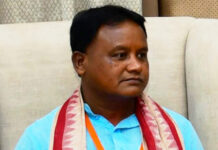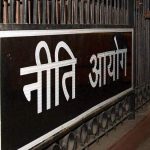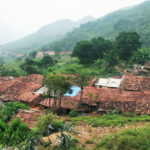The trend which was very sporadic in the late sixties of the last century has now come to a full circle. The Indian family has come a long way from its idealistic state of collective, normative, group oriented and mutual love and respect to an individualistic style of living.
In our country, a value-based family system has historically prevailed. Family was just like an umbrella under which starting from the great grandfather to the new born were finding place. It was considered as a family tree having several branches like sons, daughters, grandsons, granddaughters and several other relations residing under one roof. But over a period of time the joint family culture has been shattered and, in its place, a nuclear family system has emerged. This has resulted due to population growth, modernization, globalization and shifting of family income from farm to job.
The agriculture-based family economy has lost its relevance since long. The revolution in the field of education has transformed the agrarian family economy to service-oriented family economy. As job is not available in villages, the educated search employment opportunities outside. Up to the sixties of the last century, it was restricted only to few educated who were migrating from villages to cities for jobs. While migrating to cities, they were not uprooting their roots from villages rather preferring to keep their families in villages and remitting their income to the villages. But that scene could not last long. The service holders of the cities preferred to keep their family with them at the place of their job in the pretext of better education facilities for their children. The old parents with an intention to look after the family business like agriculture, diary, poultry, orchard preferred to stay in the villages.
The trend which was very sporadic in the late sixties of the last century has now come to a full circle. The Indian family has come a long way from its idealistic state of collective, normative, group oriented and mutual love and respect to an individualistic style of living. Under these circumstances, the aged people are the worst sufferer.
The traditional norms and values of our society focussed on respecting and providing care for the elderly. The elderly family members were normally taken care of within the family unit itself. The joint family system was providing social networks, appropriate environment to the elders to spend their lives with safety, security and emotion. But globalization and growth of individualistic family philosophy have eroded the traditional values of family system leaving the elders to a state of isolation. Increasingly, aged people are being perceived as burdens due to their disability and dependence on others for care.
The present generation which values earning most rather than family relationship preferred working spouse. When both are employed, they have hardly any time to give for the family. Even their own children are left to the services of caretakers or day care system. They have enough economic power to afford such necessities but no time to give the elders. The aged elders are considered as a liability to them. In their hectic busy life schedule, they are unable to give time and attention to the elder members. The elders being neglected and prefer to remain in their own world where they can share their joys and sorrows with others. As a result of which now the villages as well as cities have witnessed two set of societies. A set is of old and elderly people and another set is of young couple with their children. The elders having regular source of income like pension or interest earning from investment any how managing their economic need but the elders bereft of such opportunities and depending upon the mercy of their children are living a miserable life. Even they are preferring to Old age homes or Ashramas run by charity. Life for them becoming a hell.
In urban areas there are facilities of Old age homes both free and paid category, but the rural areas have no such opportunities. The elders of the present generation who are staying in the villages are from the background of agriculturist and their children are the first-generation service holders. Being neglected by their children, they are forced to lead a miserable life both economically and emotionally at villages. In urban centers the elders those who are staying alone are mostly salaried persons, who have tried their best to give proper and quality education to their children to compete the world. The children have also not belied their expectation and fulfilled the wishes of their parents. The urban centers, where once they were born and brought up, became small for their aspiration and dream. So, they migrate to cities and even abroad. Now villages and some D category cities and towns have become the place of elders.
Old age with disabilities is considered as curse by the elders. They become emotionally and psychologically weak and find themselves alienated from the family as well as the societies. Old age is an inevitable phase of life, with declining capacities and changing physical and psychological needs. As much water has flown in the mean time in our family system, it is not easy to go back to the joint family system where elders can get proper care and attentions. Similarly, we can’t stop the globalization of our economy and restrict our young only in the family fold. Only we can change our mind set towards the elders by considering them as the backbone of not only the family but also of the society. Their presence and involvement keep the family bond intact and connect generations. Care and respect to the elders should be the call of the present time. Along with the family members, the society and also the government should take care of the elders by providing them services as required to maintain a dignified life.






































